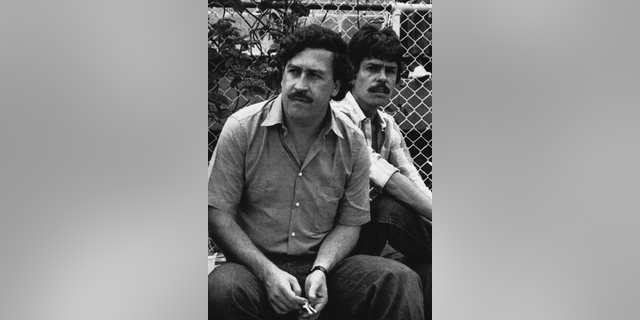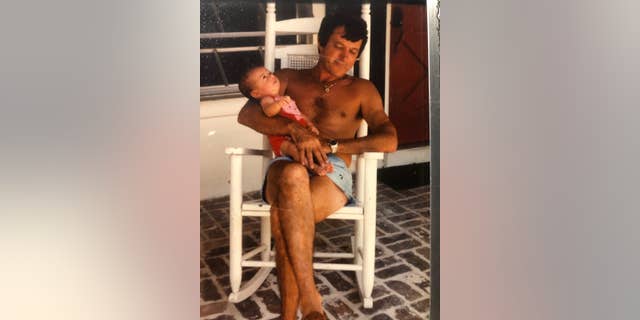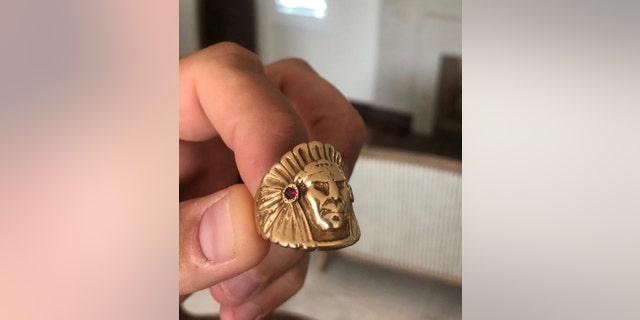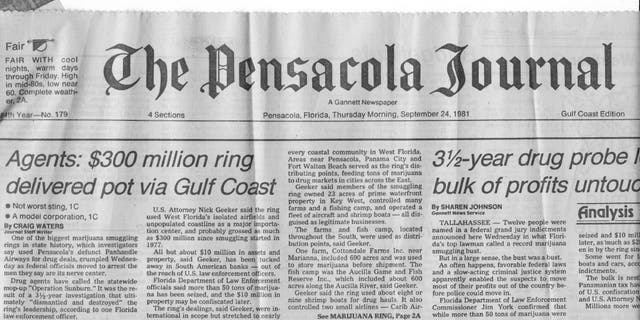
In the last two years, attorney and lobbyist Brady Cobb has managed to convince members of the Washington establishment into voting in support of legalizing cannabis.
In a true-life
storyline more befitting a Hollywood biopic, a man whose father was once
a top pot smuggler for Pablo Escobar is an attorney and lobbyist
working to flip the Washington, D.C. political establishment into
supporting marijuana legalization.
South Florida
attorney Brady Cobb is the son of Clyde Walton "Bill" Cobb, who back in
the 1970s and early 80s ran a huge pot smuggling operation in the
Florida panhandle, using everything from shrimp boats, aircraft and old
Prohibition-era moonshine routes to move more than a million pounds of
Escobar's pot. Brady Cobb estimates that before his dad was finally
busted, in 1983, he had pulled in more than $300 million of Escobar's
drug money.
"They had to open a field office in Pensacola because of dad - they all got sick of driving up from Miami."
Cobb said his father inadvertently happened into the drug business in 1976, after scoring the exclusive Fort Lauderdale to Key West distributorship for an iconic suntan lotion brand.
“Dad was a redneck, and of course he had to have three acres and a barn, even while living in Key West. The Colombians were moving a load down the road – 50,000 pounds of weed on a tractor trailer – it broke down and they saw he had a barn,” Cobb recounted. “They said they would give him $70,000 if they could throw it in there. Obviously, in 1976, it was a sizeable amount of money.
And that is how he got his start in cannabis. That cannabis came right from Pablo Escobar’s Medellín.”

In this 1983 file photo, Medellin drug cartel boss Pablo Escobar
watches a soccer game in Medellin, Colombia. (AP Photo, File)

Brady Cobb as a baby with father, Bill Cobb
((Supplied) Brady Cobb)
“Most front companies are car dealerships and try to stay on the quiet side. Meanwhile, dad and mom are on yachts loud and proud,” Cobb said, noting his father was interviewed by “60 Minutes” in the early 80's, after stirring controversy by advertising with billboards featuring topless women, and the slogan “do it the French way,” along Florida’s Interstate 95.

Cobb's parents and the "front" company in Florida
Cobb said his father went on to strike another deal, building and distributing a successful natural spring water company, before prostate cancer eventually ended his life in 2010. And it was in part watching his dad strugggle with his illness when Cobb said he realized the potential of medicinal marijuana.
“When he was first diagnosed ... I saw how cannabis was the only thing that really helped him. He was given every opioid in the world, but he wouldn’t take them,” Cobb recalled. “Cannabis was the only thing that gave him any relief.”

Leading the high life running cars at Indy.
((Supplied) Brady Cobb)
“I had the opportunity to go and work in California, and then Colorado, to get into the space. But I wanted to do it in Florida,” Cobb said, who soon thereafter launched the international cannabis company SOL Global Investments, with Canadian entrepreneur Andy DeFrancesco.
“Everyone thought we were nuts,” Cobb said.

Brady Cobb said this ring, a 24-carat, ruby-adorned Indian head,
was given to his father for moving more than a million pounds of
marijuana for Pablo Escobar.
When 2016 came around, Cobb said he focused his sights on lobbying both sides of the political aisle in D.C., ditching the then-popular model of relying on liberal former Obama administration staffers to advance the cause.
“I figured Democrats were going to vote for legalization regardless. We needed Republicans, and using Obama leftovers wasn’t going to work,” Cobb said. “So I started going member-to-member, starting with the friendlies, and then having the friendlies go talk to the not-so-friendlies. We would start with the low-level staffers getting the coffee, and then move to meet with the actual members.
It was literally a process of wearing holes in our shoes, and going office to office for two years.”
The “education process,” as Cobb puts it, has involved taking key congressional staffers on tours of sprawling pot-growing facilities in Canada.
“We said ‘Put your hair nets on. Put on your booties, sterilize your hands, and we will show you what this looks like.’ We had to show that we weren’t ponytail-wearing hippies having trim parties.
We had to show that this is an operating business, with procedures and quality controls.”

Meanwhile, social perceptions of marijuana use with the public began to change. At present, 33 states and Washington, D.C., have legalized medical or recreational cannabis use. And a Gallup poll last October found nearly two-thirds of Americans - 64 percent - now support legalization.
And Cobb has been "a key part of the conversation" in Washington as momentum supporting pot legislation has changed in recent years, according to a former White House staffer.
”Brady is a common-sense guy, who can speak to people in a way they understand. He has become a kind of off-the-record source who really want to know how this process works from the trenches and the medical uses from treating epileptic seizures to PTSD, ” the former staffer said. ”Uses outside of medical are more difficult, but Brady is key in explaining it all in a common-sense way.”
And while Cobb and others lobby federal lawmakers, there's been movement at the state level in the last year. Three red states – Missouri, Utah, and Oklahoma - all authorized medical cannabis ballot measures in 2018. And in the November election, Michigan became the first Midwestern state to permit recreational pot use.
“There is no road to the White House that doesn’t involve carrying those states,” Cobb said. “All of a sudden, after that, there was interest in moving something because of those key states.”
Cobb said the effort to win over key GOP players focuses on the idea of states' rights to make their own decisions on marijuana use. “I knew we weren’t going to convince some very conservative members on cannabis. But we could convince them on state’s rights," he said. "As for the Democrats, it has been about tempering their expectations."
President Trump has said he backs states’ rights to legalize pot, and lent his endorsement to a bill to abolish federal marijuana prohibition - making him the first-ever sitting president to do so.
Cobb has been recognized for his efforts to gain support for the Secure and Fair Enforcement Banking Act, which will allow pot businesses to bank freely, like any other legitimate business.
“The Secure and Fair Enforcement Banking Act is a strong first step in providing legitimate cannabis related and state-licensed farmers, business, and consumers with access to an efficient and safe banking system, and traditional loans and capital markets – I appreciate Brady’s advocacy on this important legislation,” said a statement from Nikki Fried, Florida Commissioner of Agriculture.
And despite a number of congressional Republicans thwarting scores of marijuana amendments from making it to the House floor for votes, according to Forbes, “more bills to end or amend federal marijuana bans were filed in the 115th Congress than ever before, and they garnered a record number of co-sponsors.”
Cobb sees marijuana legislation becoming more of a bi-partisan issue in the future, and insists the long-held Republican party sentiment that supporting legalization was political suicide and went against traditional values and the war on drugs is slowly evaporated. Though there remain concerns over the potential long-term side effects for chronic pot users, such as behavioral problems, anxiety, depression, paranoia, or uncontrollable vomiting disorder.
Cobb noted that even Senate Majority Leader Mitch McConnell, (R-KY), who has long maintained he will not support pot’s legalization, did back the legalization of hemp in what became known as the Farm Bill. Cobb said McConnell is still the hardest nut to crack in D.C., mostly over his concerns regarding marijuana-impaired driving, and how it can be tested in as reliable a way that breathalyzers can currently measure blood alcohol level.

A 1983 newspaper clipping details the arrest of Bill Cobb, a one-time smuggler for Pablo Escobar.
((Supplied) Brady Cobb)

No comments:
Post a Comment